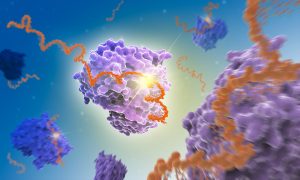
The new heroics of RNA in cell differentiation
EMBL research with Enolase 1 (ENO1) points to a possible new way to understand RNA’s leading role in how cells develop.
SCIENCE & TECHNOLOGY2022
sciencescience-technology
Showing results out of

EMBL research with Enolase 1 (ENO1) points to a possible new way to understand RNA’s leading role in how cells develop.
SCIENCE & TECHNOLOGY2022
sciencescience-technology

EMBL Heidelberg’s Matthias Hentze receives the Biochemical Society’s Centenary Award for his discoveries in RNA biology.
EMBL ANNOUNCEMENTSLAB MATTERS2022
embl-announcementslab-matters

EMBL Director Matthias Hentze describes the Environmental Research Initiative: a community effort to solve global environmental challenges.
LAB MATTERSPEOPLE & PERSPECTIVES2021
lab-matterspeople-perspectives

EMBL’s network of alumni plays a vital role in advancing the life sciences globally. EMBL provides research, services, and infrastructure that help former staff to do this effectively. For several years EMBL has been discovering more avenues to help the life sciences across Europe. A key part of…
CONNECTIONS2020
connectionsevents
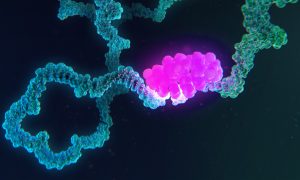
EMBL scientists working in the groups of Matthias Hentze and Wolfgang Huber have created RBPbase – a database of RNA-binding proteins – to assist the identification of proteins that interact with the SARS-CoV-2 RNA genome.
SCIENCE & TECHNOLOGY2020
sciencescience-technology

Annual Reception celebrates EMBL’s achievements in 2019 and explores its way ahead
LAB MATTERS2020
eventslab-matters
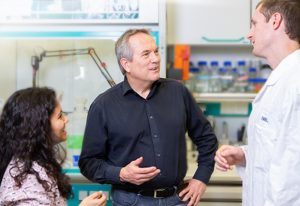
EMBL Director honoured by the international RNA Society
EMBL ANNOUNCEMENTS2020
embl-announcementsevents
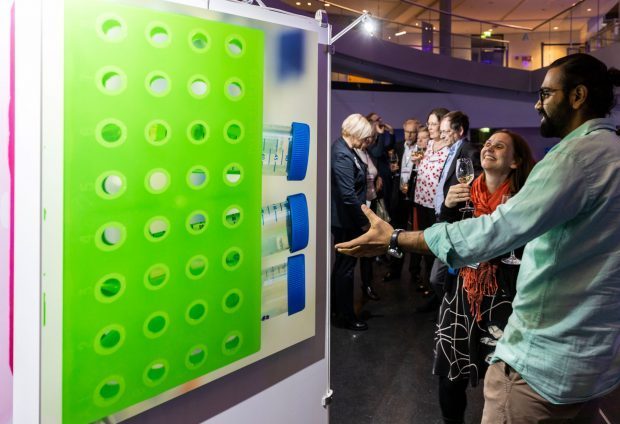
On 20 February, over 250 local supporters and friends met Edith Heard to celebrate a successful year
PEOPLE & PERSPECTIVES2019
eventspeople-perspectives
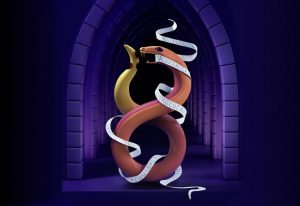
EMBL scientists identify RNA regulating protein behaviour in switch of normal roles
SCIENCE & TECHNOLOGY2019
sciencescience-technology
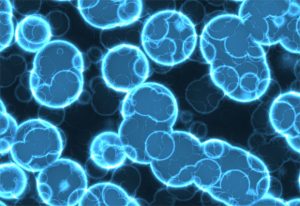
Researchers develop new method to analyse the entire protein-RNA network of the cell
SCIENCE & TECHNOLOGY2018
sciencescience-technology
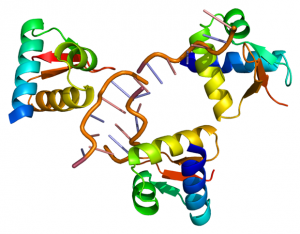
The Hentze Lab enhanced a RNA-interactome capture technique to pave the way towards medical progress
SCIENCE & TECHNOLOGY2018
sciencescience-technology
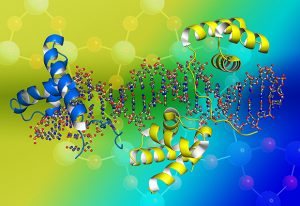
EMBL researchers develop method that simplifies the isolation of DNA- and RNA- protein complexes
SCIENCE & TECHNOLOGY2018
sciencescience-technology

EMBL and HeidelbergCement sign Memorandum of Understanding
LAB MATTERSPEOPLE & PERSPECTIVES2017
lab-matterspeople-perspectives
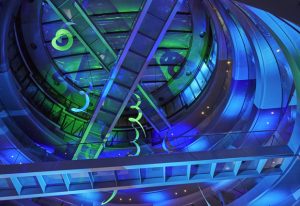
Participants learn about EMBL’s ocean biodiversity research at the Fall Gala
CONNECTIONS2016
connectionsevents
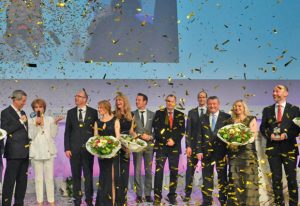
EMBL scientists regularly receive prestigious awards – meet the latest honourees.
EMBL ANNOUNCEMENTSLAB MATTERS2016
embl-announcementslab-matters

New technique reveals uncharted docking sites in RNA-binding proteins
SCIENCE & TECHNOLOGY2016
sciencescience-technology
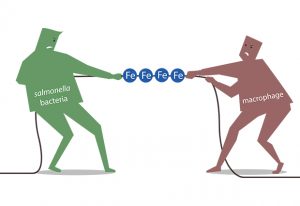
Iron regulatory proteins play important role in combatting infection, protecting against Salmonella.
SCIENCE & TECHNOLOGY2015
sciencescience-technology
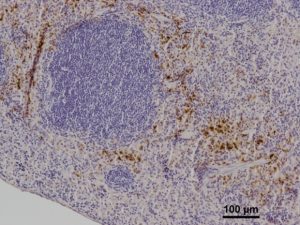
New way mice starve pathogens raises alternative approach to treatments for anaemia of chronic disease
SCIENCE & TECHNOLOGY2015
sciencescience-technology
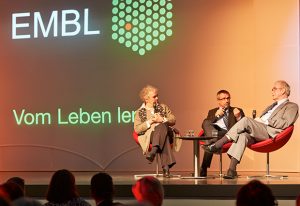
German Science Minister and other honoured guests celebrate 40 years of ‘Learning from life’.
LAB MATTERS2014
eventslab-matters
In our not-so-distant evolutionary past, stress often meant imminent danger, and the risk of blood loss, so part of our body’s stress response is to stock-pile blood-clotting factors. Scientists in the Molecular Medicine Partnership Unit (MMPU), a collaboration between the European Molecular…
SCIENCE & TECHNOLOGY2011
sciencescience-technology
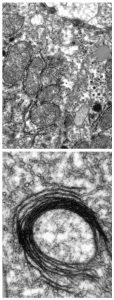
Most organisms need iron to survive, but too much iron is toxic, and can cause fatal organ failure. The same is true inside cells, where iron balance must also be maintained. In a study published today in Cell Metabolism, scientists at the European Molecular Biology Laboratory (EMBL) in Heidelberg,…
SCIENCE & TECHNOLOGY2010
sciencescience-technology
Recycling is important not only on a global scale, but also at the cellular level, since key molecules tend to be available in limited numbers. This means a cell needs to have efficient recycling mechanisms. Researchers at the European Molecular Biology Laboratory (EMBL) and Heidelberg University,…
SCIENCE & TECHNOLOGY2009
sciencescience-technology
No results found